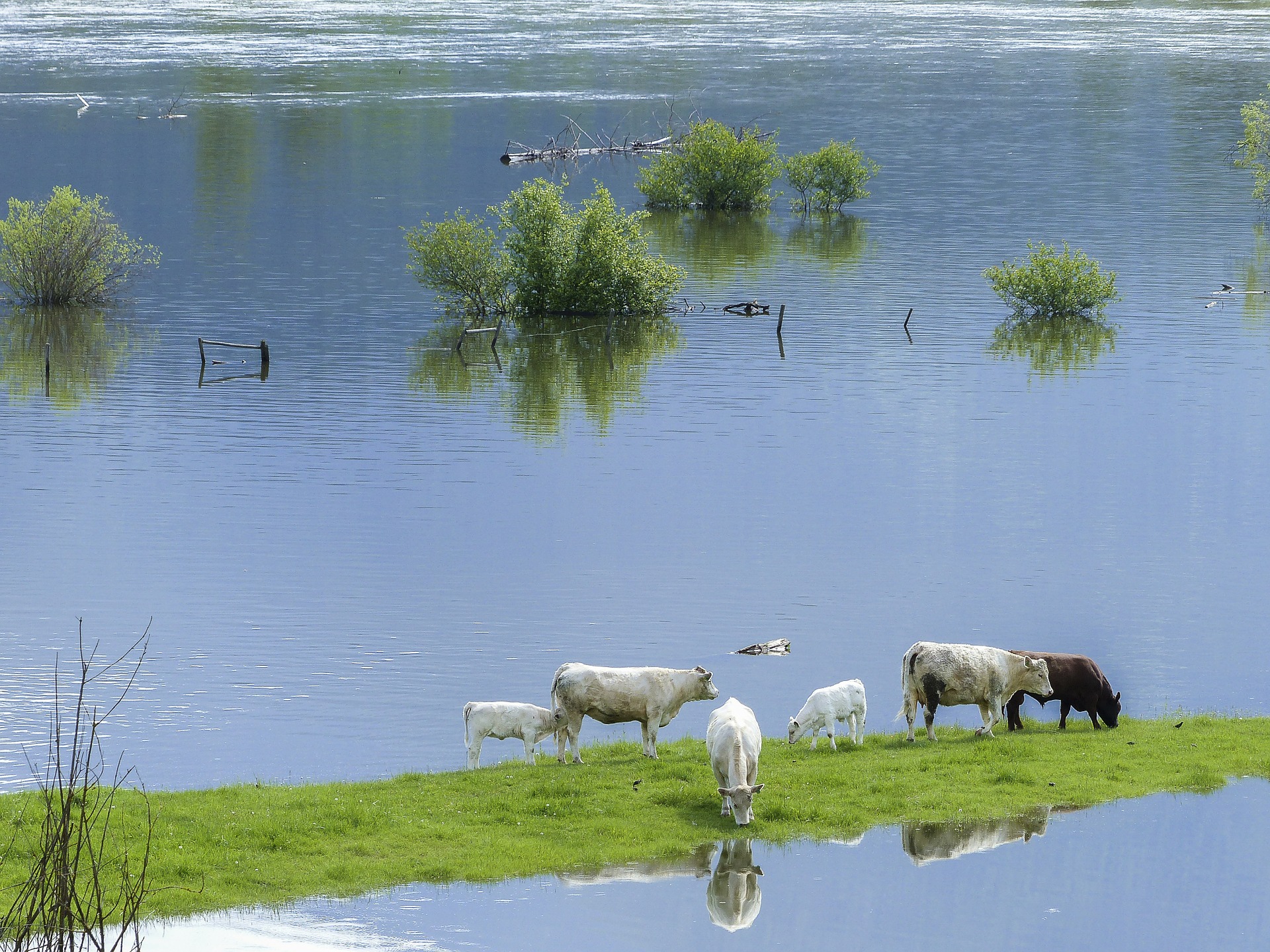My response to the Flooding Manifesto
06/03/2017

Flooding in the UK continues to cause damage and suffering on a frequent basis with substantial costs for people, businesses, infrastructure and agriculture. And when you factor in climate change and the demand for land for housing, we can fully expect flooding to be an ongoing and increasingly expensive concern.
In response, the National Farmers’ Union’s Flooding Manifesto was recently published. This suggests that if the Government is to manage future flood risk effectively, then a long-term strategic plan that is designed to cope with extreme weather events and incorporate a whole catchment approach to management decisions and interventions is required. The manifesto also highlights the key role that farming and natural flood management interventions can play in flood management.
What are the options?
Agricultural land retains water, thereby reducing the risk of flooding in urban areas. However, the value of its contribution to flood management is not well recognised. Current funding prioritises concentrations of people and property, with less focus put on protecting rural areas and agricultural land. They state that this in-balance must be addressed.
Natural Flood Management (NFM) strategies, when combined with other flood retention measures, could be a way of reducing peak flows in both rural and urban areas. Further research is required to understand and quantify their benefits better both as standalone interventions and when clustered with other flood risk management approaches. This is key to understanding where and which NFM interventions to implement across catchments to maximise flood risk reduction.
It is also necessary to quantify the consequences NFM interventions have on agricultural land, in terms of maintenance and the funding to implement the interventions successfully.
Next steps
With the frequency of extreme events due to a changing climate on the rise, clearly a more integrated catchment based approach is required to reduce flood risk. There are many parties that have a role to play to arrive at fit for purpose solutions going forward. These include insurance companies, local planning authorities, water companies, land managers, emergency responders, government agencies/government, to name a few. Without an integrated financial and catchment management approach to flooding, that accounts for the roles and interactions of all parties involved, flooding is likely to continue to cause disruption and misery.
We are doing our bit at Cranfield University to address this gap in knowledge and we will continue to work with and support organisations, agencies and businesses, as well as inform and advise policy makers and governments on best practice backed up by hard science. There are significant challenges ahead, but the cost of not working together to find balanced solutions is more misery for many people.
Want to read more about my work?
https://www.cranfield.ac.uk/case-studies/research-case-studies/drone-watch
https://www.cranfield.ac.uk/research-projects/drones-catastrophe-relief
https://www.cranfield.ac.uk/research-projects/drones-jellyfish
Categories & Tags:
Leave a comment on this post:
You might also like…
From classroom to cockpit: What’s next after Cranfield
The Air Transport Management MSc isn’t just about learning theory — it’s about preparing for a career in the aviation industry. Adit shares his dream job, insights from classmates, and advice for prospective students. ...
Setting up a shared group folder in a reference manager
Many of our students are now busy working on their group projects. One easy way to share references amongst a group is to set up group folders in a reference manager like Mendeley or Zotero. ...
Company codes – CUSIP, SEDOL, ISIN…. What do they mean and how can you use them in our Library resources?
As you use our many finance resources, you will probably notice unique company identifiers which may be codes or symbols. It is worth spending some time getting to know what these are and which resources ...
Supporting careers in defence through specialist education
As a materials engineer by background, I have always been drawn to fields where technical expertise directly shapes real‑world outcomes. Few sectors exemplify this better than defence. Engineering careers in defence sit at the ...
What being a woman in STEM means to me
STEM is both a way of thinking and a practical toolkit. It sharpens reasoning and equips us to turn ideas into solutions with measurable impact. For me, STEM has never been only about acquiring ...
A woman’s experience in environmental science within defence
When I stepped into the gates of the Defence Academy it was the 30th September 2019. I did not know at the time that this would be the beginning of a long journey as ...






